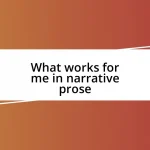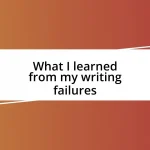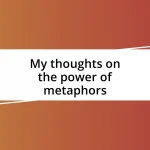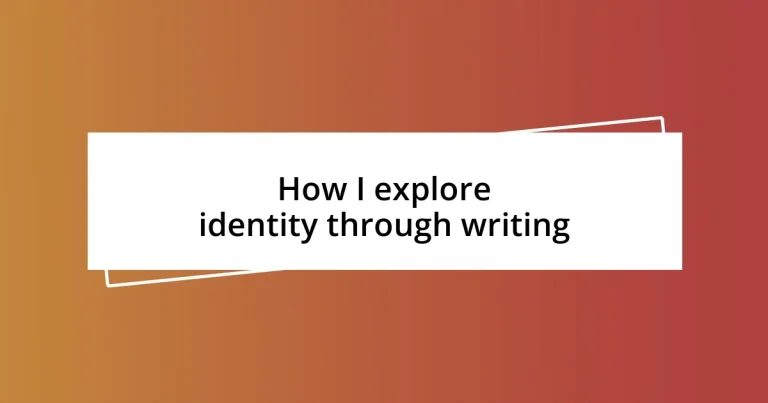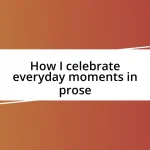Key takeaways:
- Personal identity is shaped through experiences, beliefs, and relationships, evolving over time and reflecting individual journeys.
- Sharing stories fosters connection and understanding, helping to unpack emotions, find common ground, and create a personal legacy.
- Writing serves as a tool for self-reflection and exploration, encouraging vulnerability and revealing insights about one’s true identity.
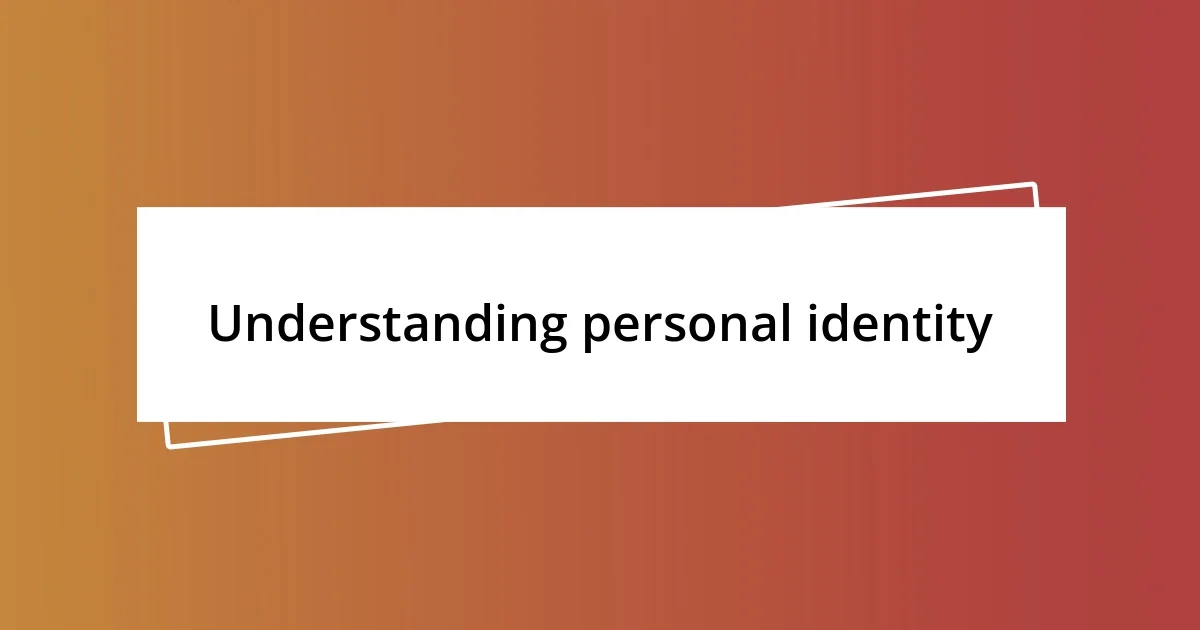
Understanding personal identity
Understanding personal identity is a deeply personal journey, and I’ve found it often involves peeling back layers of experiences, beliefs, and relationships. For instance, when I reflect on my childhood, I realize how pivotal those early moments shaped my view of self. Remember the first time you felt a spark of individuality? That’s what these moments feel like, a foundation where our identity begins to take root.
As we navigate through life, identity can shift and evolve, influenced by the people we encounter and the choices we make. I once had a friend who opened my eyes to different cultures and lifestyles, reshaping my understanding of who I could become. Isn’t it fascinating how interactions can ignite new passions or challenge our long-held beliefs?
I often wonder how many of us truly take the time to explore what makes us unique. For me, journaling has been an invaluable tool in this search, allowing me to articulate my thoughts and emotions without judgement. Through writing, I’ve unearthed aspects of my identity I didn’t know were there—pieces that make me, well, me.
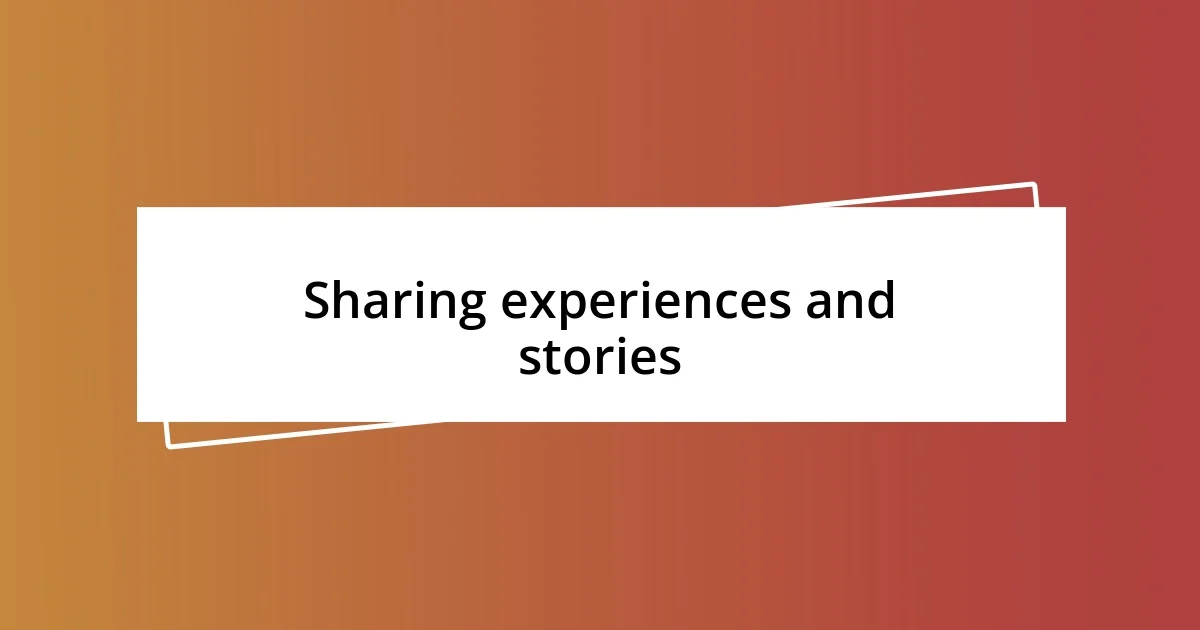
Sharing experiences and stories
Sharing experiences and stories offers a unique lens through which we can examine our identity. I remember a powerful moment during my college years when I was asked to share my family’s history in front of a small group. As I spoke about my grandparents’ struggles and triumphs, I felt a deep connection, not only to their stories but also to my own. It was as if each word breathed life into parts of me I hadn’t acknowledged before.
The act of storytelling can reveal so much about who we are. Here are a few ways I’ve found sharing experiences to be transformative:
- Unpacking Emotions: Sharing a challenging chapter of my life helped me face emotions I had buried deep inside.
- Finding Common Ground: Connecting with others over shared experiences has fostered a sense of belonging that feels both comforting and empowering.
- Creating Legacy: Every story I tell feels like a thread that weaves my past with my present, forming a tapestry of identity that I can proudly pass on.
Each experience shared has the potential to illuminate different facets of our identity, making the journey of self-exploration all the more enriching.
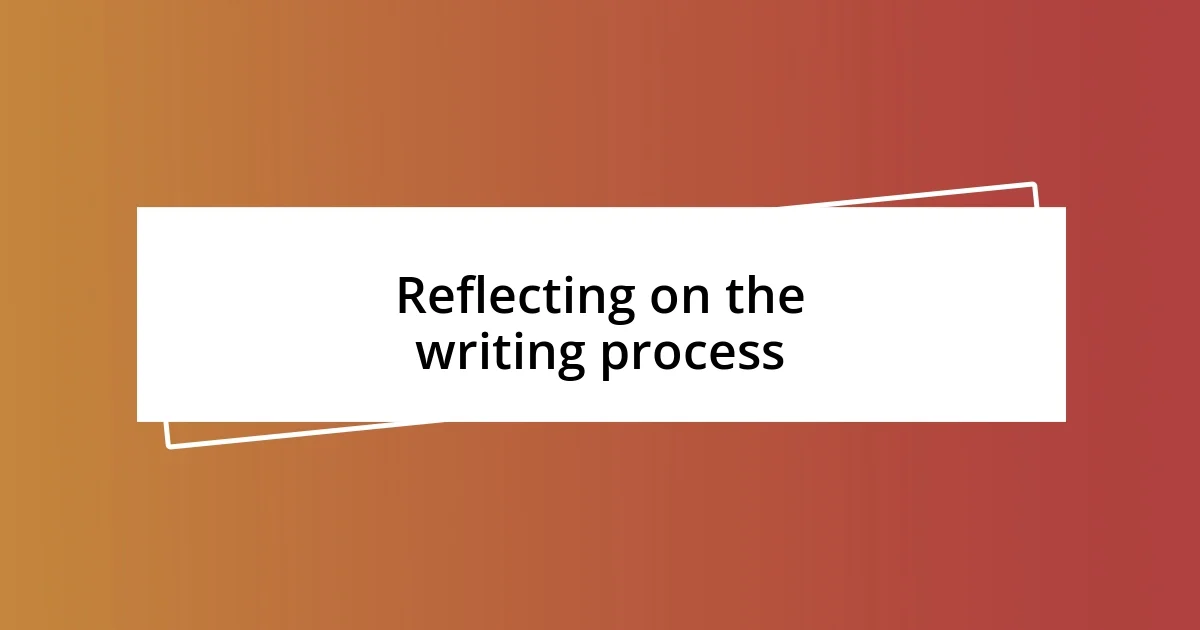
Reflecting on the writing process
Reflecting on my writing process has been like looking into a mirror that reveals more than just my face; it uncovers layers of my identity. I often jot down my thoughts in the early morning, when the world is still quiet. It’s during these moments that I stumble upon insights about myself—old fears, newfound strengths, and dreams I didn’t know I had. This practice feels less like writing and more like a conversation with my inner self.
I remember a time when I was struggling with self-doubt. As I put pen to paper, I noticed a recurring theme: my fears were rooted in others’ expectations of me. This realization was a powerful catalyst for change, prompting me to write more openly about my desires and aspirations. I found that writing serves as a safe space where I can break free from societal pressures and outline my true identity. Don’t you think it’s incredible how a simple writing exercise can lead to such profound self-discovery?
As I reflect on my journey, I realize that the writing process is an ongoing discovery. Each draft is a step into the unknown; each rewrite an opportunity to adjust my lens. I view the messiness of first drafts as a representation of my complexity—there’s beauty in the imperfections, much like life itself. Through writing, I uncover who I am, layer by layer, and I find renewed courage to embrace that identity more fully.
| Aspect | Personal Insight |
|---|---|
| Writing Time | Morning thoughts unveil layers of identity. |
| Fears and Doubts | Writing reveals societal pressures shaping my self-view. |
| Drafting Process | Embracing imperfections mirrors my life’s complexity. |
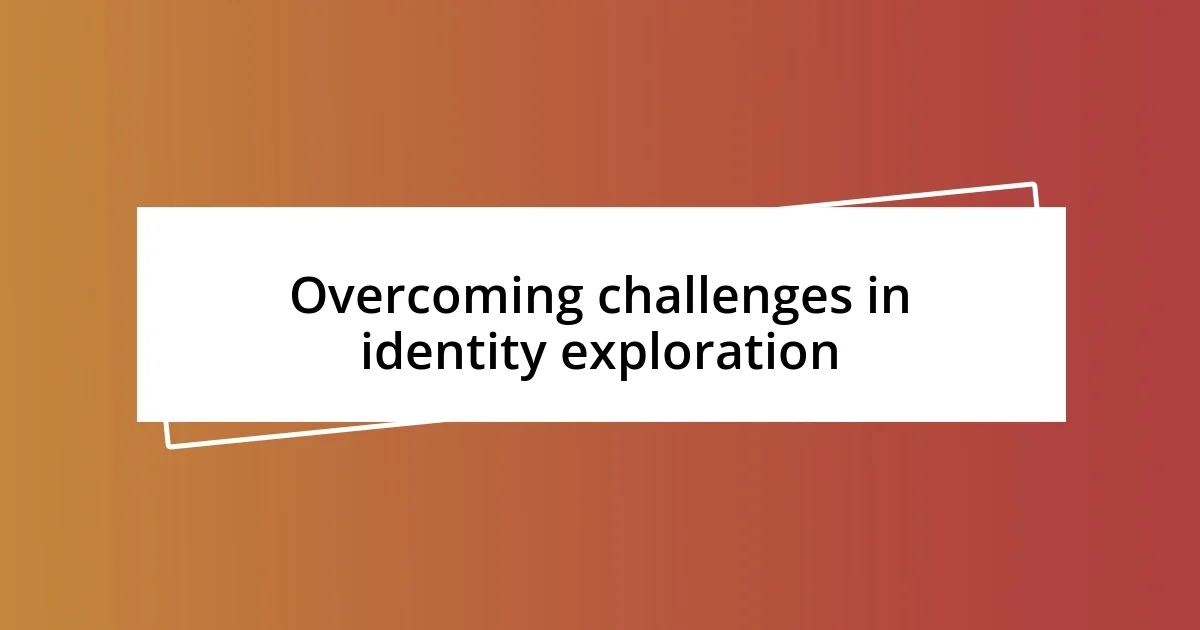
Overcoming challenges in identity exploration
As I navigated my own identity exploration, I faced numerous challenges that often felt insurmountable. There were days when I sat in front of a blank page, battling the fear of vulnerability. What if my stories weren’t good enough? But as I wrestled with those thoughts, I found that pushing through this discomfort often led to the most authentic revelations about myself. It’s funny how that fear of judgment can keep us stagnant, yet writing taught me that honesty has a liberating power.
Embracing uncertainty became a vital part of my journey. I recall a time when I was grappling with my cultural identity; it felt like I was caught between two worlds. Rather than shy away from this discomfort, I leaned into it by writing about my experiences. This act illuminated my struggles and triumphs, transforming confusion into clarity. Have you ever experienced a moment where confronting your uncertainties sparked growth? Writing has that unique ability to morph overwhelming feelings into something tangible, making them easier to navigate.
One thing I continuously remind myself is that identity exploration isn’t a linear path—it’s a winding road filled with bumps and detours. There was a particular moment when I shared my writing with a close friend, revealing parts of myself I had kept hidden. The fear of vulnerability was met with understanding and encouragement, a reminder that I wasn’t alone in my journey. That exchange not only helped me see the value in my story but also reinforced the truth that sharing our identities often bridges gaps we never knew existed. Isn’t it amazing how vulnerability can foster connection and lead to personal growth?
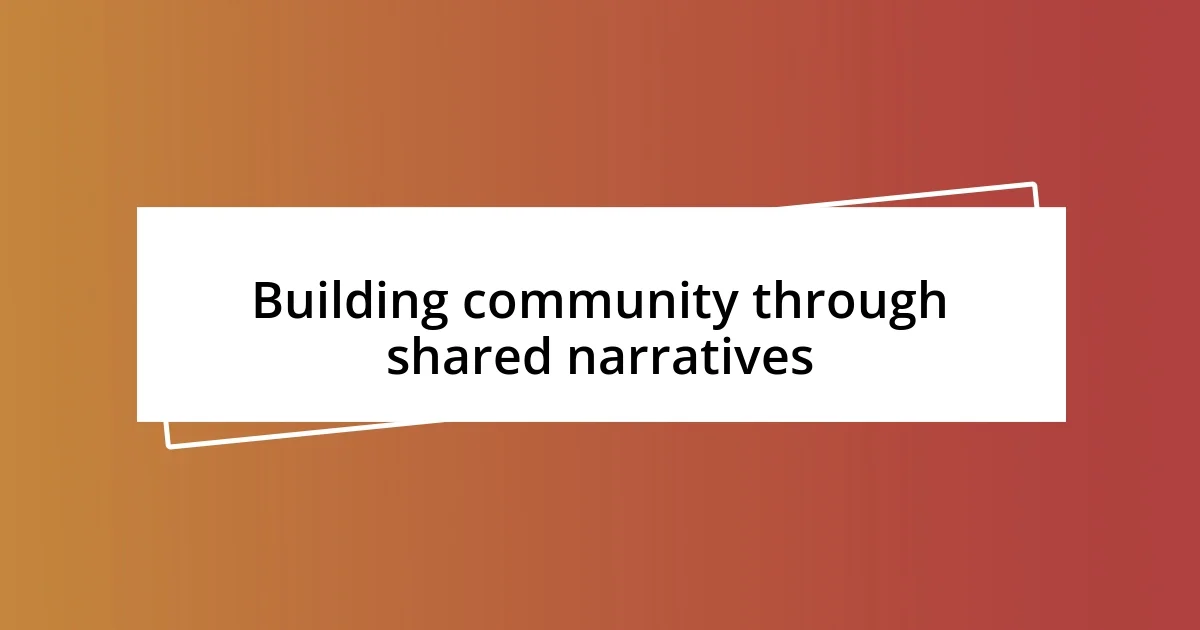
Building community through shared narratives
Building community through shared narratives is something that has profoundly impacted my journey. I vividly recall a writing workshop I attended where we were encouraged to share our stories. As I listened to others recount their personal struggles, I felt an undeniable sense of camaraderie. Each narrative unveiled a thread connecting us, illustrating that, despite our differences, we grapple with similar fears, hopes, and aspirations. How comforting is it to know that for every struggle, there’s a voice resonating with our experiences?
When we lay our stories bare, we invite others into our world, creating spaces where empathy can flourish. I remember writing about my experience with cultural dislocation and how readers reached out, sharing their own stories of navigating between cultures. That exchange made me realize that shared narratives foster understanding and validation. Have you ever experienced that moment when someone’s story mirrored your own? It truly emphasizes how collective storytelling can bridge gaps and reinforce the sense that we’re not alone in our struggles.
In these shared moments, we build a community where vulnerability becomes strength. I think back to a time when my writing sparked a lively discussion among friends who had similar experiences but different perspectives. It was through those dialogues that I discovered new ways to view my own narrative. Isn’t it fascinating how our stories evolve when they intertwine with others? In essence, crafting and sharing narratives doesn’t just unveil our identities; it connects us in ways that make us feel more whole and understood.

